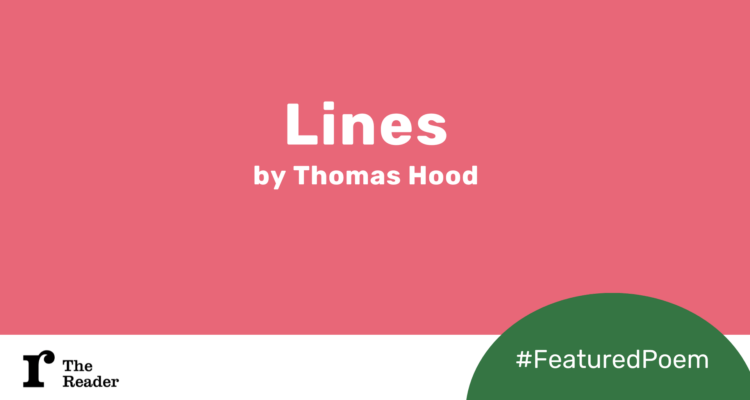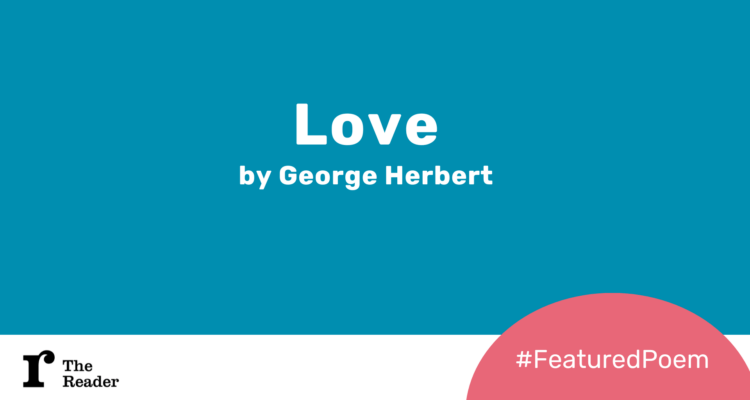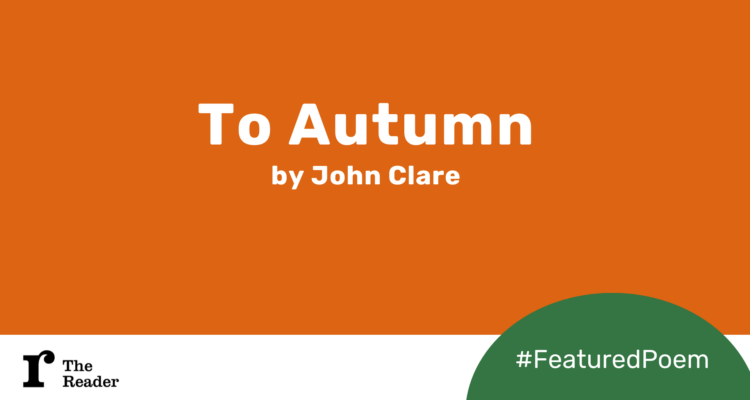Featured Poem: The Good Morrow by John Donne
This week in our special series of poems to help us through the testing times ahead, Julie Gaukroger, The Reader's Somerset Hub Leader, shares her thoughts on The Good Morrow by John Donne.
The Good Morrow
I wonder, by my troth, what thou and I
Did, till we loved? Were we not weaned till then?
But sucked on country pleasures, childishly?
Or snorted we in the Seven Sleepers’ den?
’Twas so; but this, all pleasures fancies be.
If ever any beauty I did see,
Which I desired, and got, ’twas but a dream of thee.
And now good-morrow to our waking souls,
Which watch not one another out of fear;
For love, all love of other sights controls,
And makes one little room an everywhere.
Let sea-discoverers to new worlds have gone,
Let maps to other, worlds on worlds have shown,
Let us possess one world, each hath one, and is one.
My face in thine eye, thine in mine appears,
And true plain hearts do in the faces rest;
Where can we find two better hemispheres,
Without sharp north, without declining west?
Whatever dies, was not mixed equally;
If our two loves be one, or, thou and I
Love so alike, that none do slacken, none can die.
by John Donne
The lockdown has brought us a wealth of poetry of a comforting, consoling kind. I have chosen instead a love poem which I have always found profoundly uplifting.
We talk a lot at the Reader about how poetry connects us to the world, to other people, and to all the people who have gone before. This poem has always given me that connection. Written in the 1590s, for me it makes over 400 years melt away. The recent, brilliant TV adaptation of Sally Rooney’s Normal People also brought it to mind. Connell and Marianne could be Donne’s lovers, more than four centuries on.
Back in the 16th and 17th centuries, there were lots of love poems featuring a Sylvia, Celia or Cynthia, dressed in her little shepherdess outfit, perching daintily and unattainably on top of her pedestal while a young swain of a poet swooned with idealised love for her. But then from that same time you have John Donne, and The Good Morrow. The contrast could not be more extreme. Donne’s poem is rooted in real, reciprocal feelings. And while the language is sometimes a little archaic, in tone and content it is still utterly fresh and immediate.
In the ‘little room’ of the poem he creates a perfect world of love and contentment. You can picture the lovers, entwined in a shaft of sunlight. From the start, the poet’s tone is natural, idle, conversational:
“I wonder, by my troth, what thou and I did till we loved?”
We were like children, he says. Or we were asleep – not properly awake until we met. So when he says
“And now good morrow to our waking souls”
he means ‘waking’ not just from a night’s sleep, but from the longer slumber of the time before they knew each other.
What makes this poem feel so modern to me is the perfect balance between the lovers, an equality of feeling and understanding. They “watch not one another out of fear”. The feelings of each are perfectly reflected in the other. It’s a state we all still strive for.
“My face in thine eye, thine in mine appears,
And true plain hearts do in the faces rest”
Our current state has added an extra dimension to the poem for me. Learning to make the most of what we have, and who we are with, within each of our ‘little rooms’. No need to explore new worlds, when we have what we truly need and value right here.
Lastly, depending on how much of a cynic you are, this poem contains what is either the most romantic, or the cheesiest of chat up lines:
“If ever any beauty I did see, that I desired, and got,
Twas but a dream of thee”
Let’s face it, says Donne, there have been others. I’ve been around a bit. But they were just a rehearsal. You are the real thing.
Many years ago, a friend of mine was sent these lines as a Valentine’s message in the back of the Guardian (is that still a thing?!). Reader, she married him.
Share
Related Articles

Featured Poem: Lines by Thomas Hood
Our Featured Poem for February is 'Lines' by Thomas Hood, selected and read by Frances. Lines by Thomas Hood Let…

Featured Poem: Love by George Herbert
The Featured Poem for January is Love by George Herbert and is from the anthology Stressed, Unstressed and is read by…

Featured Poem: To Autumn
For November's Featured Poem, Julie is reading 'To Autumn' by John Clare To Autumn by John Clare Come, pensive…


